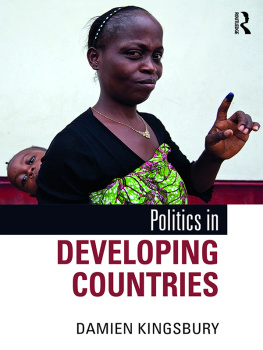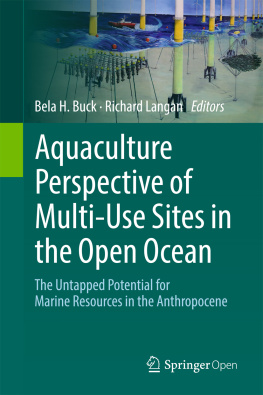
Agriculture and Employment in Developing Countries
Westview Special Studies
The concept of Westview Special Studies is a response to the continuing crisis in academic and informational publishing. Library budgets for books have been severely curtailed. Ever larger portions of general library budgets are being diverted from the purchase of books and used for data banks, computers, micromedia, and other methods of information retrieval. Interlibrary loan structures further reduce the edition sizes required to satisfy the needs of the scholarly community. Economic pressures on university presses and the few private scholarly publishing companies have greatly limited the capacity of the industry to properly serve the academic and research communities. As a result, many manuscripts dealing with important subjects, often representing the highest level of scholarship, are no longer economically viable publishing projectsor, if accepted for publication, are typically subject to lead times ranging from one to three years.
Westview Special Studies are our practical solution to the problem. As always, the selection criteria include the importance of the subject, the works contribution to scholarship, and its insight, originality of thought, and excellence of exposition. We accept manuscripts in camera-ready form, typed, set, or word processed according to specifications laid out in our comprehensive manual, which contains straightforward instructions and sample pages. The responsibility for editing and proofreading lies with the author or sponsoring institution, but our editorial staff is always available to answer questions and provide guidance.
The result is a book printed on acid-free paper and bound in sturdy, library-quality soft covers. We manufacture these books ourselves using equipment that does not require a lengthy make-ready process and that allows us to publish first editions of 300 to 1000 copies and to reprint even smaller quantities as needed. Thus, we can produce Special Studies quickly and can keep even very specialized books in print as long as there is a demand for them.
About the Book and Author
High rates of growth in agricultural production need not be incompatible with increased employment, income, and the satisfaction of basic needs in the lower-income developing countries. Emphasizing this theme, the author presents three alternative agricultural development strategies and suggests guidelines for identifying appropriate policies and programs. These policies are designed to maximize agricultural production and provide additional opportunities for employment, thereby increasing the purchasing power of rural families.
The three models of agricultural development (the Dual-Size Structure model, the Uniformly Small Farm model, and the Mixed Characteristics model) differ in terms of ownership and access to land and other resources, macroeconomic policies affecting relative prices, and sectoral policies that determine the type of technologies available to farmers. The author assesses the potential of each strategy for generating employment and increasing income, drawing on case studies of Latin American, Asian, and African economies.
Dr. Bela Mukhoti is an agricultural economist in the International Economics Division, Economic Research Service of the U.S. Department of Agriculture.
First published 1985 by Westview Press
Published 2018 by Routledge
52 Vanderbilt Avenue, New York, NY 10017
2 Park Square, Milton Park, Abingdon, Oxon OX14 4RN
Routledge is an imprint of the Taylor & Francis Group, an informa business
All rights reserved. No part of this book may be reprinted or reproduced or utilised in any form or by any electronic, mechanical, or other means, now known or hereafter invented, including photocopying and recording, or in any information storage or retrieval system, without permission in writing from the publishers.
Notice:
Product or corporate names may be trademarks or registered trademarks, and are used only for identification and explanation without intent to infringe.
Library of Congress Cataloging in Publication Data
Mukhoti, Bela.
Agriculture and employment in developing countries.
(Westview special studies in social, political, and economic development.)
Includes bibliographical references.
1. Agricultural laborers--Developing countries--Supply
and demand. 2. Agriculture and state--Developing
countries. 3. Rural development--Government policy--
Developing countries. 4. Food supply--Government policy
--Developing countries. 5. Developing countries--Full
employmen policies. I. Title.
HD1542.M85 1985 331.1253091724 84-25710
ISBN 0-8133-7032-9
ISBN 13: 978-0-367-00823-9 (hbk)
This book is based on a project report written in 1982 under a participating agency agreement between the Agency for International Development and the U.S. Department of Agriculture under my project leadership. Many of the ideas in the AID report drew heavily on my previous work. Included in my previous work are my doctoral dissertation/journal articles published in the 1960s and 1970s dealing with agrarian structure and its relationship to agricultural development, and, in particular, an unpublished paper on Patterns of Technological Transformation of Agriculture and Economic Development prepared for presentation at the 1980 Allied Social Science Convention in Denver, Colorado.
I wish to thank Dr. Bruce Johnston for agreeing to collaborate on the AID project. He used his extensive knowledge of the development arena and made an invaluable contribution to writing all parts of the report. His contribution was based on his joint book with Peter Kilby, Agriculture and Structural Transformation , and on the book Redesigning Rural Development: A Strategic Perspective , which he wrote in collaboration with William C. Clark. Dr. Johnston has requested that particular acknowledgement be given to Clarks contribution to some of the ideas presented here. The policy analysis perspective and the treatment of issues of organization and management drew heavily on chapters in their joint book (which was written mainly by Clark).
Dr. Johnston was, however, unable to collaborate with me in writing this book. His contribution is, thus, limited to writing the AID Report only, from which I extracted at length.
Dr. Lon Cesal was involved in all phases of the AID project, and made a major contribution to bringing the various facets of the study together into a final report. Also, he contributed to writing some sections of the AID Report which are not included in this book.
Special acknowledgement is due to I. G. Singh of the World Bank for generously providing the authors with his manuscript entitled The Landless in Asia . Many of his ideas have been incorporated in this book.
I wish to express special gratitude to Charles Hanrahan for his support and encouragement in initiating collaboration with AID, and to T. Kelley White for his administrative support throughout the preparation of the original report for AID. I also thank John Eriksson, Douglas Caton, and Don McLelland of AID for the support and spirit of cooperation in which the report was prepared.
Bandita Nayak provided excellent research assistance.







